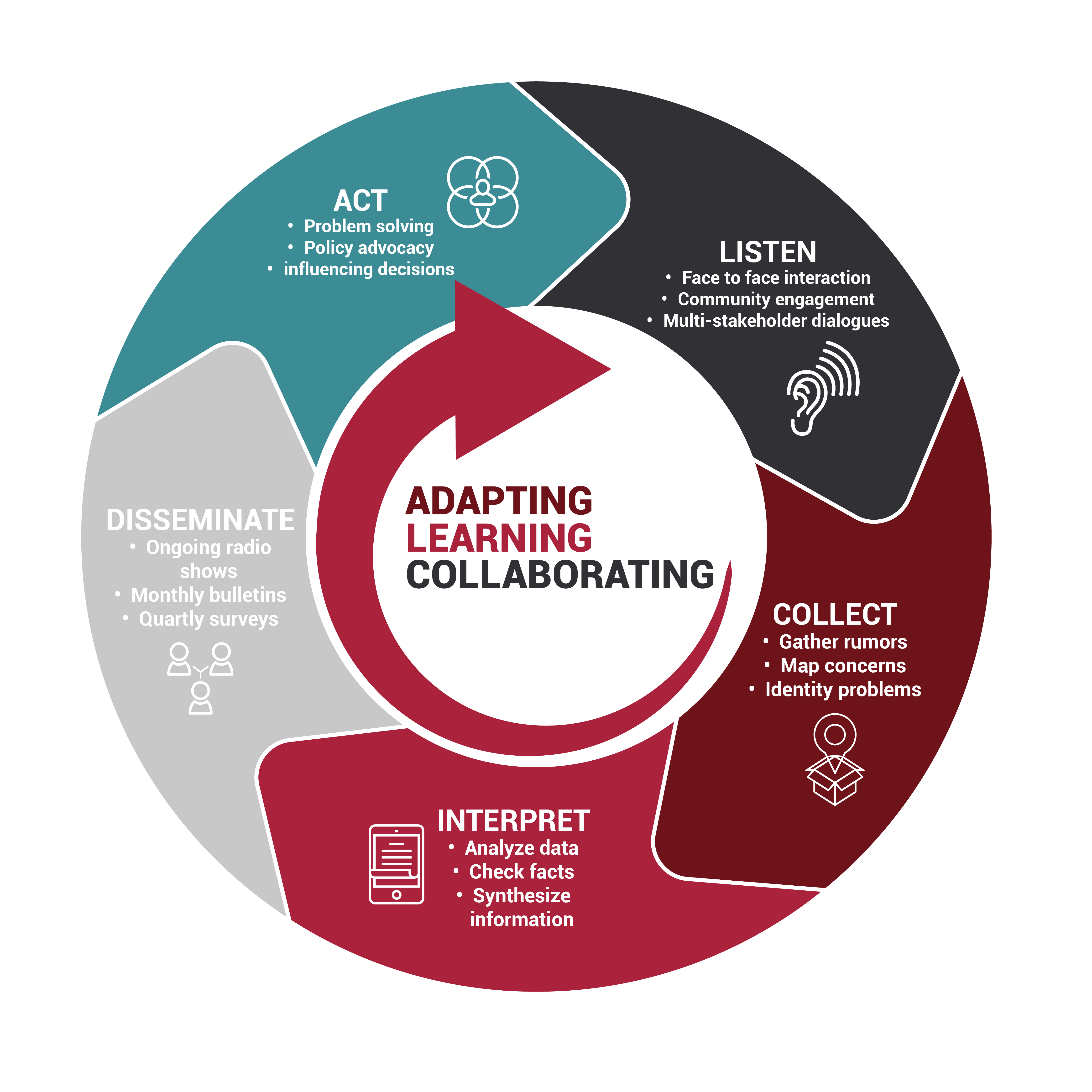THE PROBLEM
Citizens and communities are rarely consulted about the decisions that affect their lives, particularly in hard-to-reach places. Where information is collected from them, the process is extractive, with very little feedback on how this data is used. Systemic corruption, opacity, discrimination or mismanagement by local governments and companies often prevents people from making their voices heard on issues they care about. Where trust in authority is low, rumours and misinformation can create negative feedback loops that further divide communities.
At the same time, power-holders in the public and the private sectors often lack the information they need to make decisions effectively and the channels to engage with their constituencies in meaningful ways. All of which undermines development, fuels conflict and prevents progress towards the SDGs.
THE SOLUTION
Communities select volunteers called Community Frontline Associates (CFA) and with the support of local journalists, they act as two-way information collection and dissemination units. The CFAs gather information on critical problems affecting their communities on a monthly basis through community surveys. They then relay this information to our teams at the Lab to coordinate with local and national power holders.
We feed validated information on these issues back down to communities through local radio shows, community meetings, infographics, music, films and bulletins in local languages, facilitating conversations about key local concerns and working with partners to solve problems.
The Civic Action Teams (CivActs) ensure that everyone understands how and when development will take place, building accountability into local decision making in real-time, and closing the feedback loop between citizens, governments, the media and the private sector.
THE SCALE & SCOPE
The Civic Action Teams began in Nepal, after the earthquakes in 2015, as a mechanism to collect and disseminate information related to the relief process in the worst affected districts.
They quickly became a core component of the $4.4 billion recovery effort and the information was used regularly by the reconstruction authority and donor organizations to inform decision-making.
In Nepal, the CivActs have grown to cover issues of migration, public service delivery and public finances; and have now been adapted to Liberia (gold mining and service delivery), Mali (security and justice issues), Nigeria (inclusion and equity), Pakistan (service delivery) and South Africa (health and infrastructure).
THE FEEDBACK LOOP
The CivActs process is circular, with the feedback loop building trust as it evolves. Adaptive learning is at the center of the model, with this learning used to improve the process in real-time.
CivActs is a platform which allows for deep collaboration with other organizations that have expertise around local issues. This allows them to be adapted and contextualized to build collective trust from the bottom up.

IN THE PAST 4 YEARS CIVACTS HAVE GENERATED:
OVER

community conversations about topics ranging from how to understand legal documents to how to complain about corruption;
OVER

concrete issues solved for communities, from accessing stalled funding to fixing healthcare facilities to improving access to resources;
OVER

people reached through local community radio shows discussing local issues and informing people of decisions made;
OVER

townhall meetings bringing together over ![]() community members;
community members;
OVER

bulletins and infographics disseminated to communities and government offices across Nepal, Mali and Liberia.
